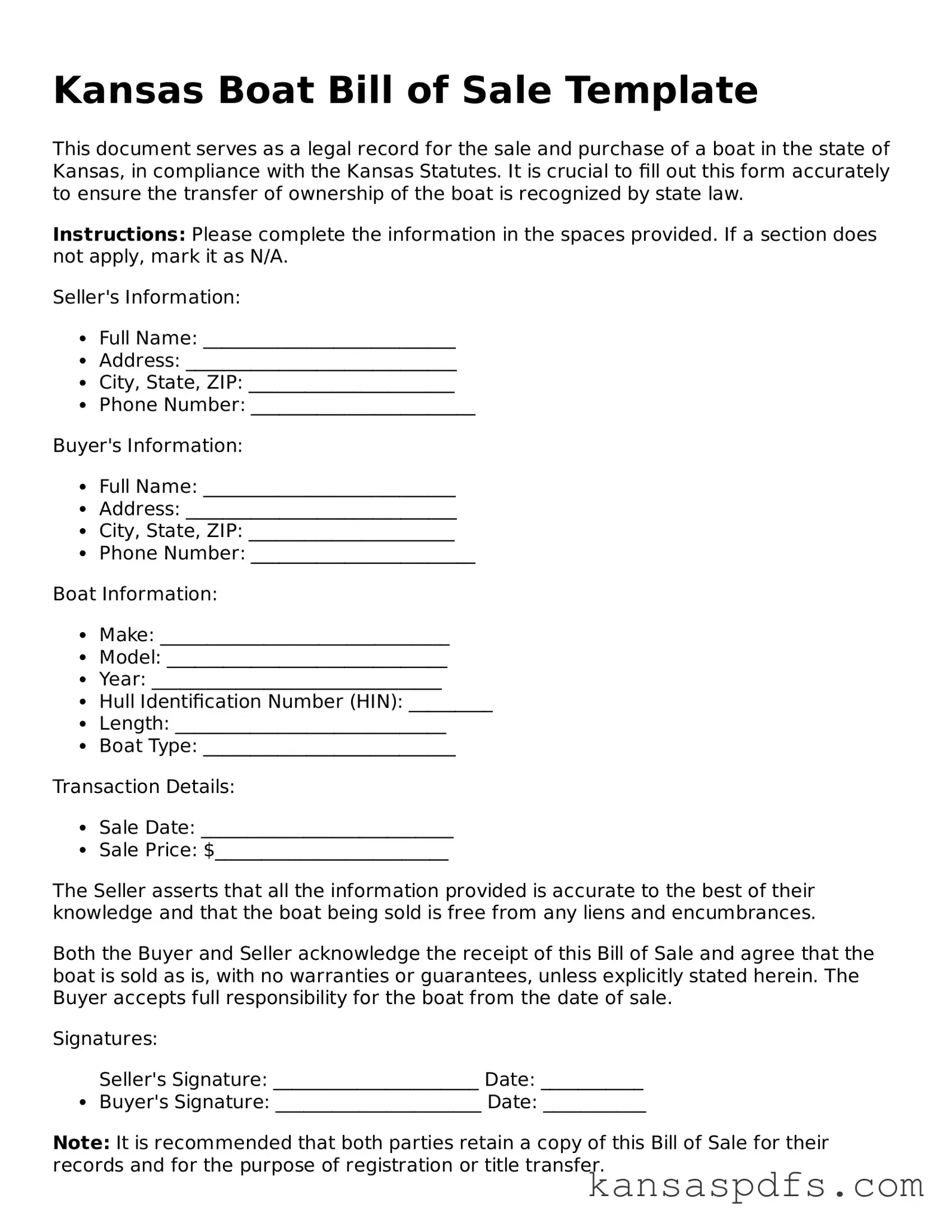What is a Kansas Boat Bill of Sale form?
A Kansas Boat Bill of Sale form is a legal document that records the details of the transaction between a seller and a buyer for the sale and purchase of a boat within the state of Kansas. This document captures essential information such as the boat's description, the sale price, and the particulars of both parties involved. It acts as a receipt and may be required for the registration of the boat under the new owner's name.
Why is a Boat Bill of Sale important in Kansas?
In Kansas, a Boat Bill of Sale serves as an important piece of evidence that proves the transfer of ownership of a boat from one person to another. It provides legal protection for both the buyer and seller by documenting the terms and conditions of the sale. This document is particularly crucial if any disputes or claims arise post-sale. Additionally, it is often required by the Kansas Department of Wildlife, Parks, and Tourism for the registration and titling of the boat.
What information should be included in a Kansas Boat Bill of Sale?
A comprehensive Kansas Boat Bill of Sale should include detailed information to ensure the legality and validity of the transaction. Essential information includes the full names and addresses of both the buyer and seller, a detailed description of the boat (including make, model, year, Hull Identification Number), the sale price, payment details (including any deposit or installment arrangements), and the date of sale. It should also be signed by both parties and, in some cases, may require notarization.
Is notarization required for a Kansas Boat Bill of Sale?
The requirement for notarizing a Boat Bill of Sale varies by jurisdiction. In Kansas, while notarization is not strictly required by law to validate the document, it is highly recommended. Notarization adds an additional layer of authenticity to the document, potentially preventing legal issues related to the transaction. Before finalizing the sale, it is advisable to check the latest requirements with local authorities or a legal professional.
How can one obtain a Kansas Boat Bill of Sale form?
A Kansas Boat Bill of Sale form can be obtained through several means. The Kansas Department of Wildlife, Parks, and Tourism's website offers a template that can be downloaded and filled out. Additionally, legal document services online provide customizable forms that comply with Kansas law. Alternatively, drafting one with the assistance of a legal professional ensures that all the specifics of the transaction are accurately and legally recorded, tailored to the needs of both parties.

